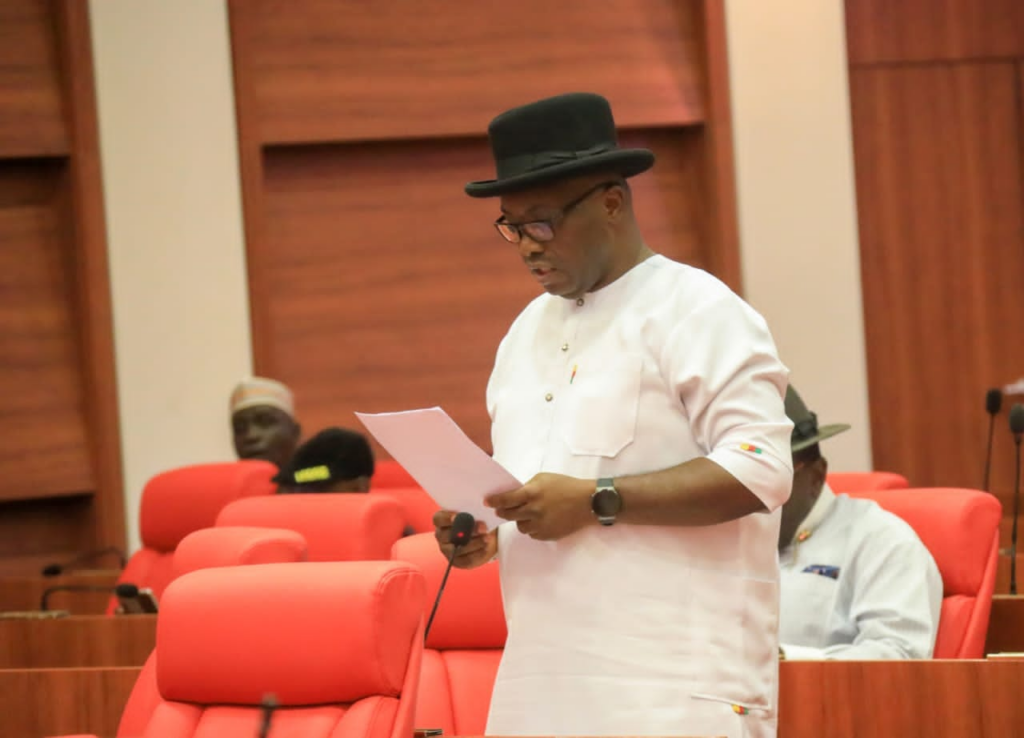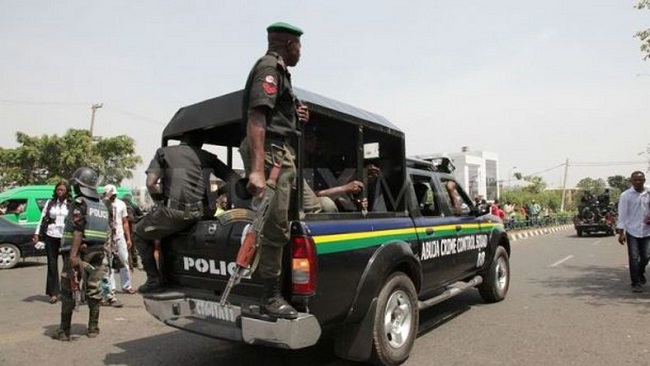Some years ago, Rotimi Bello lost Mama Silifa, one of his loved ones, to an inferno that erupted after a petrol-laden truck rammed into some shops in Ibadan. Bello revealed this in an op-ed published by Business Day in 2022.
There are trails of tanker explosions in different parts of Nigeria. At Upper Iweka Road and Ochanja, Onitsha in the Anambra South Senatorial District of Anambra State on October 17, 2019, a tanker explosion left some persons burnt dead, including a baby. At the same time, more than 40 buildings were destroyed, as well as about 500 lock-up shops.
Both incidents resulted in the loss of lives, razed properties and the collapse of many hitherto thriving businesses. A hellish conflagration engulfed the atmosphere for some hours, leaving the residents scampering for safety.
The laxity that reigns supreme in the handling of petroleum products movement on Nigerian roads has continued to account for the deaths of a great number of Nigerians and destruction of properties. Obviously, these occurrences on the roads and in communities have reached an all-time high since the early 2000s.
First responders and emergency workers have had to contend with raging fires to rescue victims and save properties. Official laziness or inadequate resources could overwhelm emergency workers sometimes that a disaster would have completely happened before their arrival.
Due to tanker fire outbreaks, morgues have been swamped with dead bodies and local hospitals littered with helpless victims enduring various degrees of burns to their bodies. Over 400 people have been killed by tanker explosions, according to a review of some past incidents done by FIJ.
On the side of the government, press releases fly around sympathising with victims. Leaders who take prestige in posing for photographs while visiting mourning homes could go to perform the rituals of condoling with affected families. While the public hardly knows what happens next, these families are usually left to lick their wounds with little or no compensation.
READ ALSO: EYEWITNESS: How Tanker Explosion Killed 3 Children, Pregnant Woman in Ondo
Despite losing some Nigerians under one of the most terrible circumstances, lawmakers have looked the other way in providing effective measures that could make it harder for such explosions to happen.
In 2019, however, Patrick Ifeanyi Ubah sponsored a bill in the Senate to regulate the industry. The bill would set up a special tribunal with powers to entertain compensation claims by anyone involved in a tanker explosion against any trucking company.
We have collated some of such explosions in the country. Subsequently, we looked at the content of the almost-four-year-old bill.
ONDO STATE (I)
Date: July 23, 2023
Victims: 15 killed.
Reason: A tanker fell and spilled its petroleum content on the road; people rushed to the scene to scoop the inflammable product in the Ore area of Ondo State. A witness account alleged a phone caused a spark and made the explosion happen.
ONDO STATE (II)
Date: April 5, 2013.
Victims: 36 lives lost, three injured and several properties damaged.
Reason: A fuel tanker drove into a crowd on the Benin-Ore highway in Ondo State and exploded.
LAGOS INCIDENTS (I)
Date: January 2023.
Victims: None killed, but two vehicles were burnt.
Reason: A container truck vehicle had a brake failure and collided with a 33,000-litre capacity petrol tanker, resulting in an inferno. This happened on Otedola Bridge along Lagos-Ibadan highway.
LAGOS INCIDENTS (II)
Date: May 27, 2022
Victims: 1 killed, four vehicles burnt.
Reason: Multiple crashes with four smaller vehicles and a tanker conveying 45,000 litres of petrol on Otedola Bridge, according to Lagos State Emergency Management Agency (LASEMA).
READ ALSO: Fuel Tanker Explosion Kills 3 Along Lokoja-Abuja Road
LAGOS STATE III
Date: June 28, 2018.
Victims: More than 9 people killed 67 vehicles burnt.
Reason: Brake failure. The vehicle was said to be heading toward Berger when it ran over several cars and finally exploded on the notorious Otedola Bridge.
KADUNA STATE
Date: March 1, 2023
Victims: No lives lost. Dozens of buildings, vehicles and shops razed down.
Reason: A fuel tanker crashed in the Jere area of Kaduna State.
OGUN STATE
Date: October 6, 2022.
Victims: Two killed, three sustained severe injuries. Twelve vehicles razed, including the fuel tanker, A Volkswagen (Danfo), 3 Marcopolo buses, four tricycles, three motorcycles and a number of kiosks and shops.
Reason: While the driver was trying to navigate downhill Ilo-Awela Road, he lost control of the vehicle forcing it to descend backward. It fell on its side and finally exploded, according to Ajibade Adekunle, Commander, Ogun State Traffic Compliance and Enforcement Agency (TRACE).
Date: October 22, 2022.
Victims: Ten persons burnt alive.
Reason: It was suspected to have been caused by excessive speeding by an Iveco truck driver which smashed a tanker body resulting in a fire outbreak due to petrol leakage.
READ ALSO: Man Who Risked His Life by Evacuating Burning Tanker Gets N1.2m From Fundraiser
OYO STATE (I)
Date: April 18, 2019.
Victims: Two persons burnt, six vehicles and ten motorcyles destroyed.
Reason: A large-haul truck skidded off the road while trying to avoid a pothole on a bridge at Old Ife Road, bursting into flames immediately.
OYO STATE (II)
Date: May 27, 2011.
Victims: Several persons and properties.
Reason: The driver lost control of the vehicle on the Ojo/Iwo Road area of Ibadan. It killed several persons, including a nursing mother, her child, and people on the road. Several individuals also lost their properties to the fire.
PLATEAU STATE
Date: April 27, 2023
Victims: 13 persons killed and ten hospitalised. 28 shops, eight vehicles, six tricycles, and two motorcycles burnt.
Reason: The trailer head of a tanker, fully loaded with diesel, was disjoined from the fuel container, causing a fireball that razed down properties and terminated lives at Bauchi Road Junction, Jos North Local Government Area, Plateau State.
KOGI STATE (I)
Date: November 10, 2022.
Victims: 18 people involved, out of which 12 were burnt beyond recognition. Others had varying injuries to their bodies.
Reason: A gasoline vehicle had a break failure and made a collision with another vehicle. It eventually led to a fire outbreak in the Ofu council area of Kogi State.
KOGI STATE (II)
Date: September 23, 2020
Victims: 23 lives lost.
Reason: The tanker first crushed a family in a car to death before bursting into large flames in Lokoja, Kogi state capital. In his reaction to the incident, Muhammadu Buhari, Nigeria’s president at the time, said, “The death of 23 people as confirmed by the Federal Road Safety Commission, represents another disturbing and saddening incident in the litany of tragedies that have befallen our country.”
RIVERS STATE
Date: July 12, 2012.
Victims: More than 100 while about 50 had severe burns.
Reason: The petrol lorry had a crash in Ahoada in Port-Harcourt and spilled its contents on the road. Scoopers thronged to the scene to fetch the petrol on the ground but were soon caught up in a fireball that followed the spill.
BENUE STATE
Date: April 18, 2021
Victims: Nine people killed and 72 houses and shops were set on fire.
Reason: A petrol-laden truck crashed on the road and its contents spilled out causing a fire. The fire followed the trail of petrol to burn properties and human beings in the Agatu Local Government Area of Benue State.
READ ALSO: Why Cycling Claims Lives on Nigerian Roads
WHAT HAPPENED NEXT AFTER EACH OF THESE INCIDENTS
Petrol tanker explosions have become commonplace in Nigeria. In the many cases mentioned above, families stood helpless watching their loved ones burnt alive while traffic management authorities struggled to contain the situation. The incidents stated above are just a tip of the numberless scandals that have claimed lives on Nigerian roads for decades.
Poor regard for safety by truck owners mostly aided this phenomenon. Each time a tragedy strikes, political leaders, friends and associates condole with affected homes and wish them a quick recovery process. But, has anyone bothered to know whether they truly quickly recovered? No. This is because the country has moved on until another needless tragedy happens again.
Sometimes, the guilt of a trucking company or driver isn’t difficult to establish, according to the comments of traffic control bodies to some of the crashes. However, that often marks the end of it as there is no evidence of punishment against such companies for running afoul of safety policies on the road.
THE TANKER BILL PASSED BUT NOT LAW YET

Ubah’s bill, titled “Petroleum Tankers Safety Bill, 2019”, was first introduced in the Senate on November 6, 2019. He reportedly conceived the bill following the massive loss of lives and properties in Onitsha in an explosion mentioned earlier. Except this bill, no other regulation exists at the federal or subnational levels to strengthen the transportation of this essential product and empower Nigerians fight for justice accordingly.
Since 2019, lawmakers in the 9th Senate led by Ahmad Lawan only passed the bill on May 9, 2023, a few days to the end of that dispensation. In Nigeria, a bill has been passed if it passes through the third reading. Third reading success does not guarantee success at the last two stages. The last two stages are harmonisation/concurrence stage (the bill would be sent to the House of Representatives for its perusal, to concur or reject) and then finally receive presidential assent.
READ ALSO: JUST IN: Helicopter Crashes in Lagos
The Petroleum Tankers Safety Bill has five major parts and 41 subdivisions. Among other things, it seeks to establish truck transit parks and regulate the fabrication of tankers to prevent content leakage. It would also assess the obligation of trucking companies or its drivers in the case of a crash. The bill also prescribes that victims or their families would be able to approach a claims tribunal to apply and press for compensation from companies with trucks involved in destructive crashes.
FIJ’s email and text messages sent to the lawmaker, to understand his efforts to make sure the bill succeeds, received no response.
Ubah had publicly expressed his commitment during the valedictory session of the previous Senate on June 10 to ensure that the bill becomes law.
“I will leave no stone unturned to ensure that all the bills I sponsored, especially the ones awaiting presidential assent like the Petroleum Safety Bill which will drastically reduce petrol tanker accidents are signed into law,” Ubah said in his statement.
Subscribe
Be the first to receive special investigative reports and features in your inbox.















